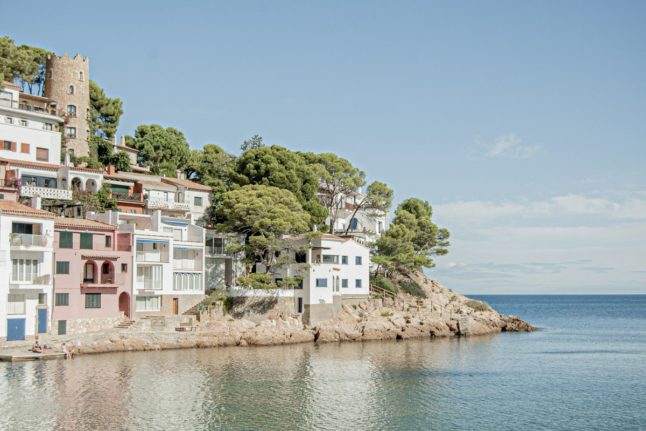One of the biggest challenges for people who want to move to Spain is finding the right job which will help them further their careers.
It’s easier for EU nationals as they enjoy the freedom of movement to easily live and work in Spain, whereas for third-country nationals getting a job here depends in many cases on the prospective employer not finding a suitable EU candidate for the position (although Spain has just made it easier for Spanish companies to hire workers from outside of the EU).
READ ALSO: The visas Americans need to live and work in Spain
But who are the job candidates that are most sought-after in Spain and the skills that could ensure that you get the job as a foreigner, even if your Spanish isn’t up to scratch yet or even if you need a work visa for Spain?
International job search engine LinkedIn has published a list of the 20 jobs that according to their data are most in demand in Spain in 2022, with bigger growth over the past five years than any other positions advertised.
It’s a list that’s dominated by tech-related positions, which reflects how the work market is changing (this is our last list of non-tech related jobs that are in demand in Spain).
Here is the top 20 list, including the core skills required for each position, the cities in Spain where most of these jobs are and the desired experience for candidates.
Site Reliability Engineer (Ingeniero/a de fiabilidad del sitio)
Required skills: Ansible, Docker, Amazon Web Services (AWS)
Cities with the most contracts : Madrid, Barcelona, Palma de Mallorca
Average years of prior experience: 9.6
Business development representative (Responsable de desarrollo de negocio)
Required skills: Salesforce, Business Development, Lead Generation
Cities with the most contracts : Barcelona, Madrid, Valencia
Average years of prior experience: 5.6
Cloud Architect (Arquitecto/a de sistemas en la nube)
Most common skills: Amazon Web Services (AWS), Microsoft Azure, Cloud Computing
Cities with the most contracts: Madrid, Barcelona, Alicante
Average years of prior experience: 13
Machine Learning Engineer (ingeniero de aprendizaje automático)
Required skills: Machine Learning, Computer Vision, Data Science
Cities with the most contracts: Madrid, Barcelona, Valencia
Average years of experience: 5.2 years
Cybersecurity Specialist (experto/a en ciberseguridad)
Required Skills: Cybersecurity, Ethical Hacking, Information Security
Cities with the most contracts: Madrid, Barcelona, Seville
Average years of experience: 8.3 years
Software Application Engineer (Ingeniero/a de aplicaciones)
Core Skills: Java, Eclipse, SQL
Cities with the most contracts: Madrid, Zaragoza, Alicante
Average years of experience: 5.5 years
Clinical Trial Manager (Responsable de ensayos clínicos)
Required Skills: Good Clinical Practice, Clinical Trial Management System, Oncology
Cities with the most contracts: Madrid, Barcelona, Valencia
Average years of experience: 9.6 years
Infrastructure Engineer (Ingeniero/a de infraestructura)
Required skills: Amazon Web Services, Ansible, Infrastructure
Cities with the most contracts: Madrid, Barcelona, Valencia
Average years of experience: 9.4 years
Supply Chain Planning Manager (Responsable de cadena de suministro)
Required skills: Supply Chain Management, SAP Products, Production Planning
Cities with the most contracts: Barcelona, Madrid, Toledo
Average years of experience: 5.8 years
Clinical site specialist
Required skills: good clinical practice, clinical research, oncology
Cities with the most contracts: Madrid, Barcelona, surroundings of Madrid
Average years of experience: 9.7 years
Mortgage Loan Officer (Agente hipotecario)
Required skills: Home Loans, Residential Mortgages, Refinancing
Cities with the most contracts: Madrid, Barcelona, Alicante
Average years of experience: 7.4 years
User Experience Researcher
Required skills: Usability, User Centered Design, Wireframing
Cities with the most contracts: Barcelona, Madrid, La Coruña
Average years of experience: 9.3 years
Back-end Developer (Desarrollador/a back-end)
Required skills: Git, Docker, MongoDB
Cities with the most contracts: Madrid, Barcelona, Valencia
Average years of experience: 7 years
Sustainability manager (Responsable de sostenibilidad)
Required skills: Sustainable Development, Sustainability Reporting, Consulting
Cities with the most hires: Madrid, Barcelona, Seville
Average years of experience: 6.5 years
Data Engineer (Ingeniero/a de datos)
Required skills: Apache Spark, Scala, Hadoop
Cities with the most hires: Madrid, Barcelona, Seville
Average years of experience: 7.2 years
Strategic Planning Manager (Responsable de planificación estratégica)
Required skills: Business Strategy, Digital Transformation, Management Consulting
Cities with the most hires: Madrid, Barcelona
Average years of experience: 7.8 years
Customer Relationship Management Analyst
Required skills: Salesforce, Microsoft Dynamics CRM, SQL
Cities with the most contracts: Madrid, Barcelona, Malaga
Average years of experience: 6 years
Talent Acquisition Specialist (Técnico/a de selección de personal or reculatador)
Required skills: Recruiting, Talent Management, LinkedIn Recruiter
Cities with the most contracts: Madrid, Barcelona, Valencia
Average years of experience: 5.1 years
Software Account Executive (Ejecutivo/a de cuentas de software)
Required skills : Solution Selling, SaaS, Enterprise Software
Cities with the most contracts: Madrid, Barcelona
Average years of experience : 12.7 years
Mechanical Supervisor (Supervisor/a mecánico/a)
Required skills: Project Engineering, Inspection, AutoCAD
Cities with the most contracts: Huelva, Cáceres, Seville
Average years of experience: 11.7 years
READ ALSO:



 Please whitelist us to continue reading.
Please whitelist us to continue reading.
Member comments